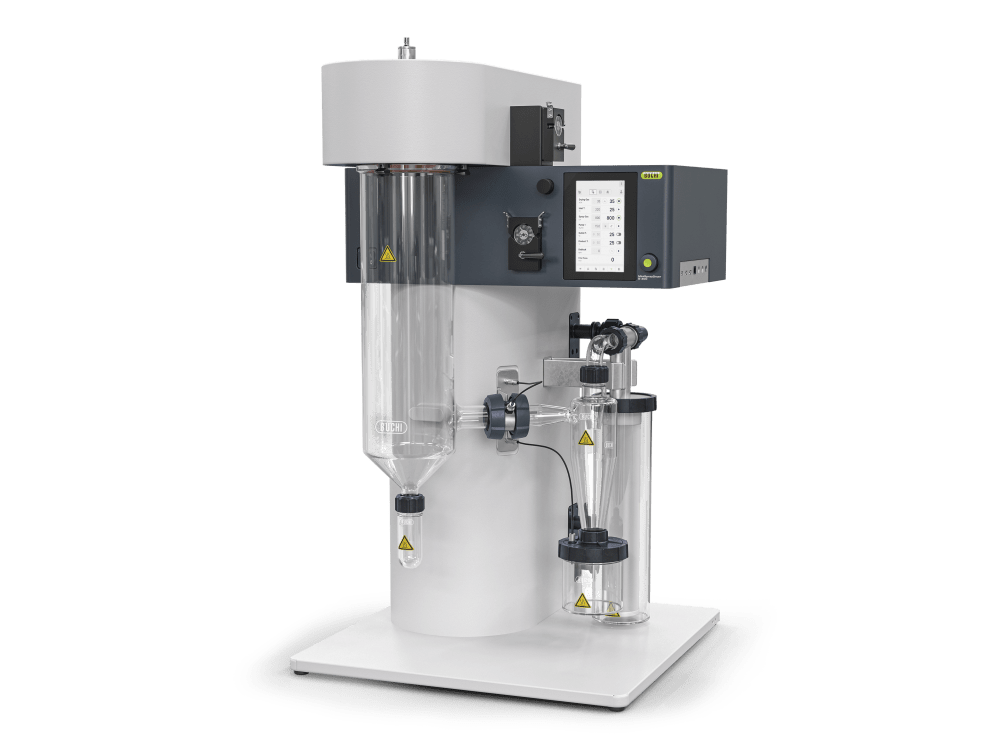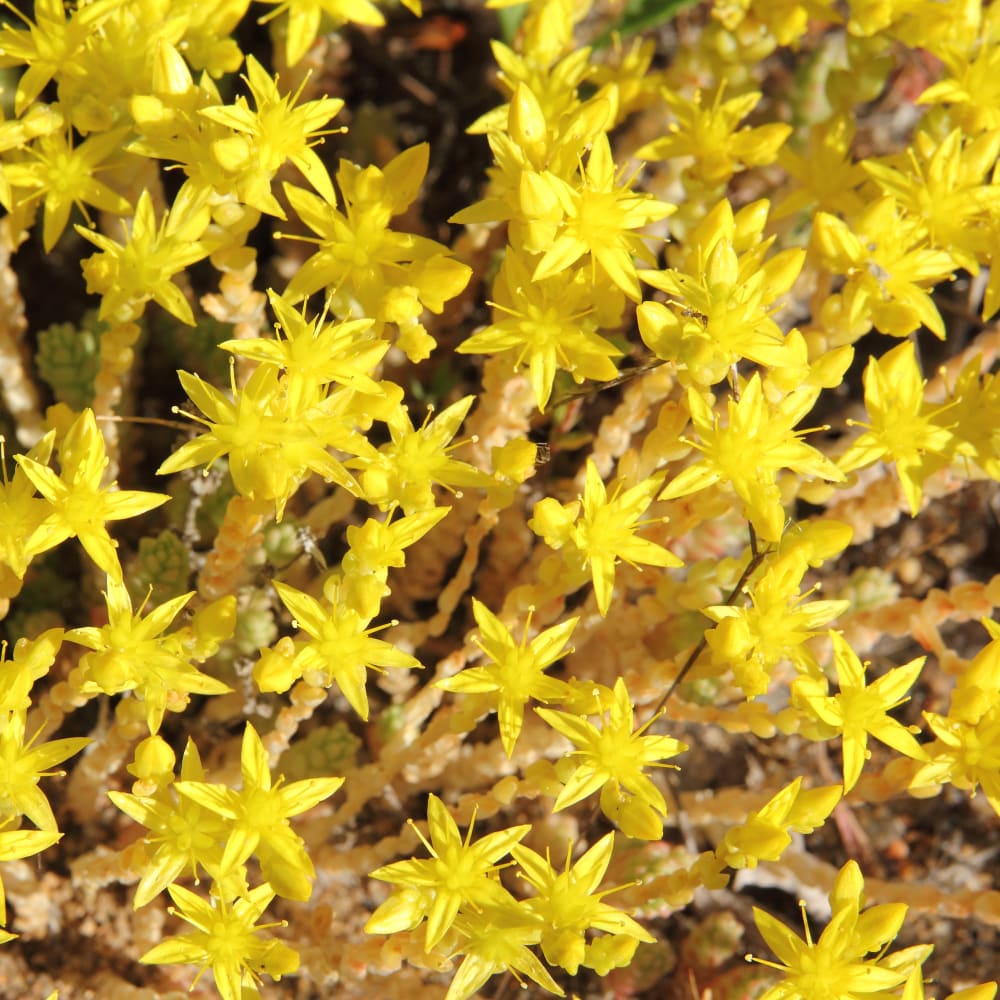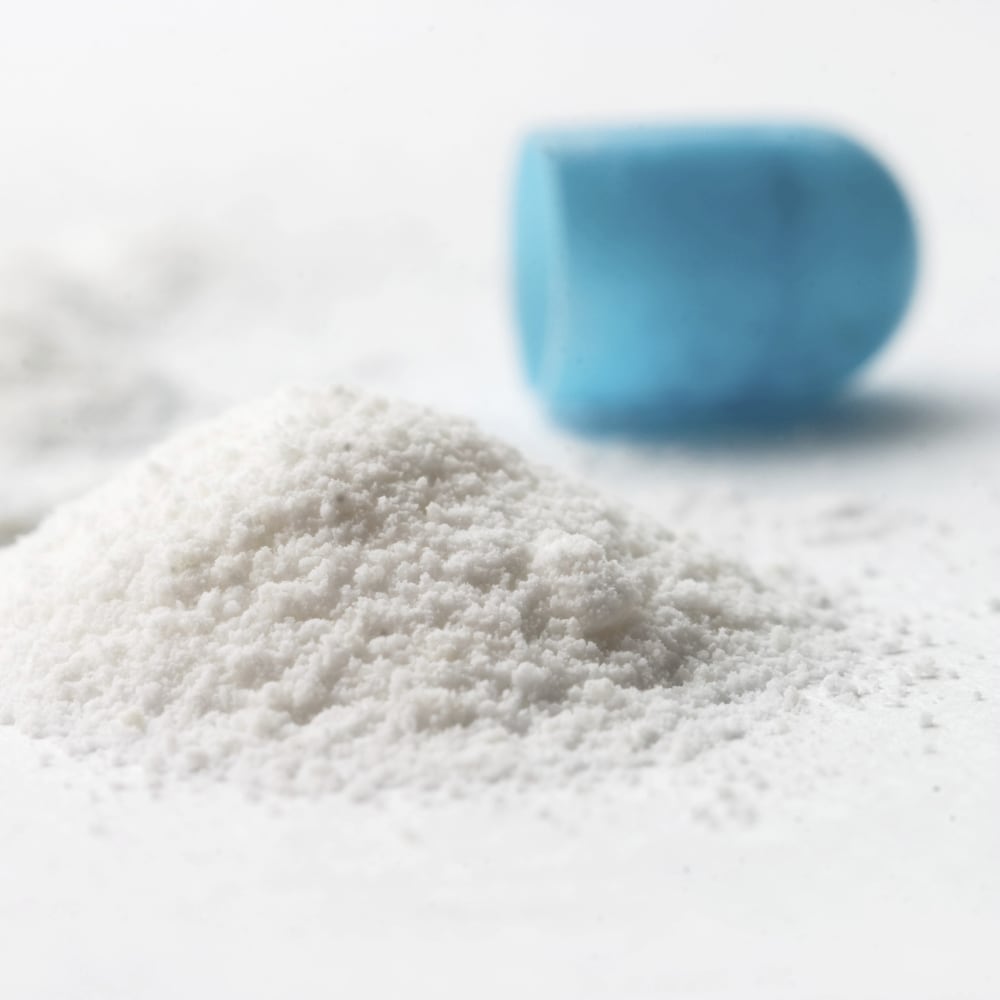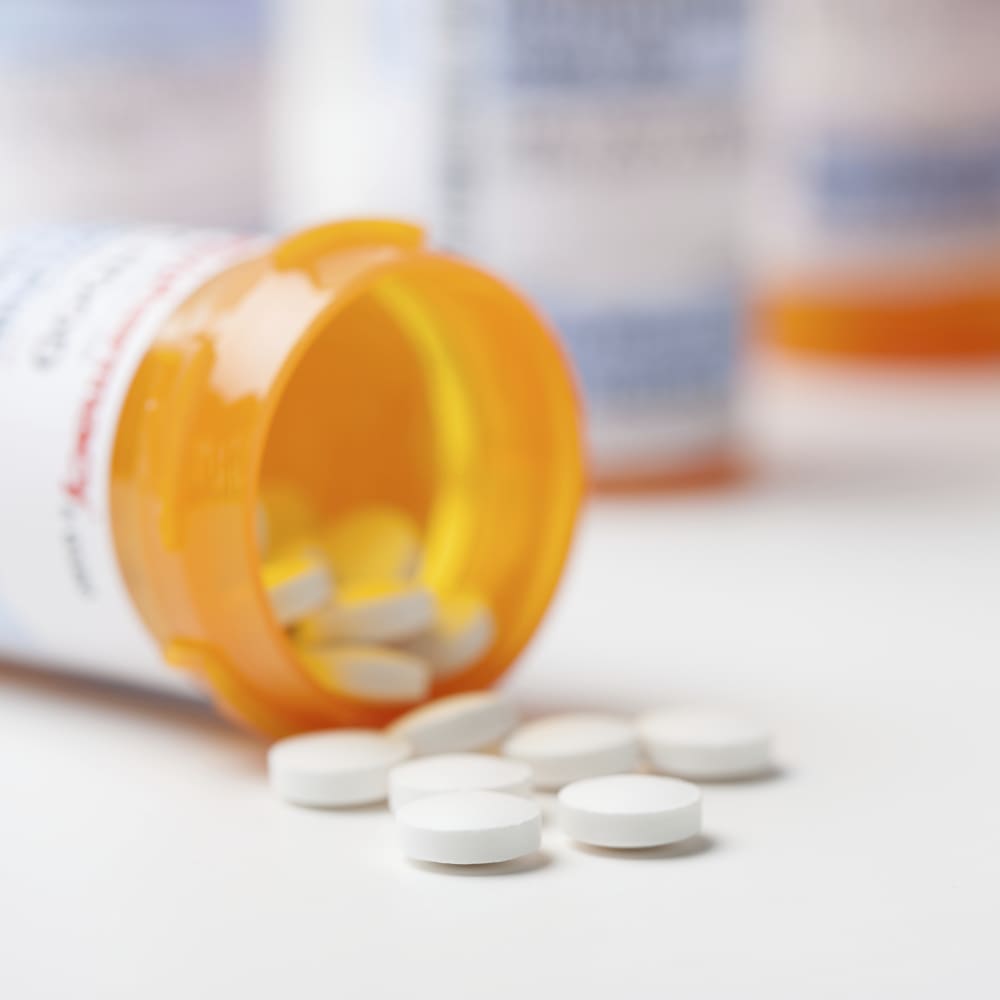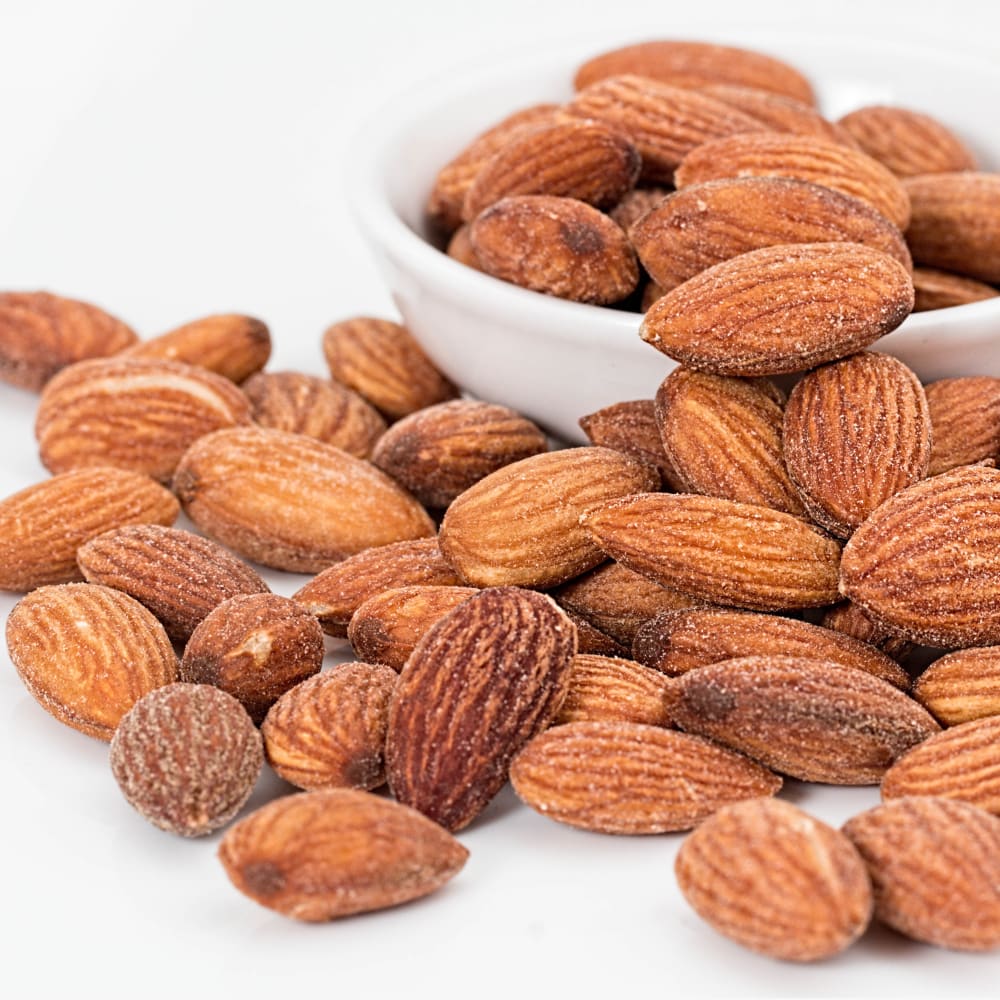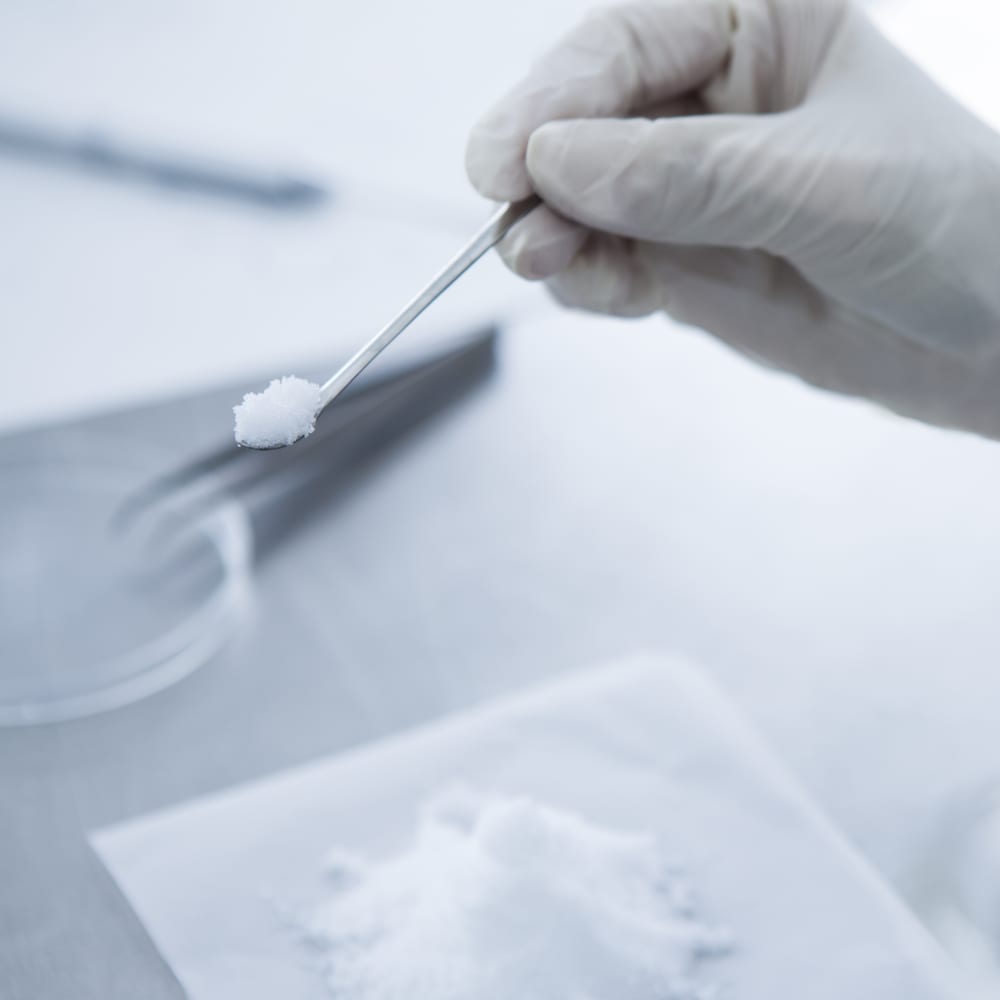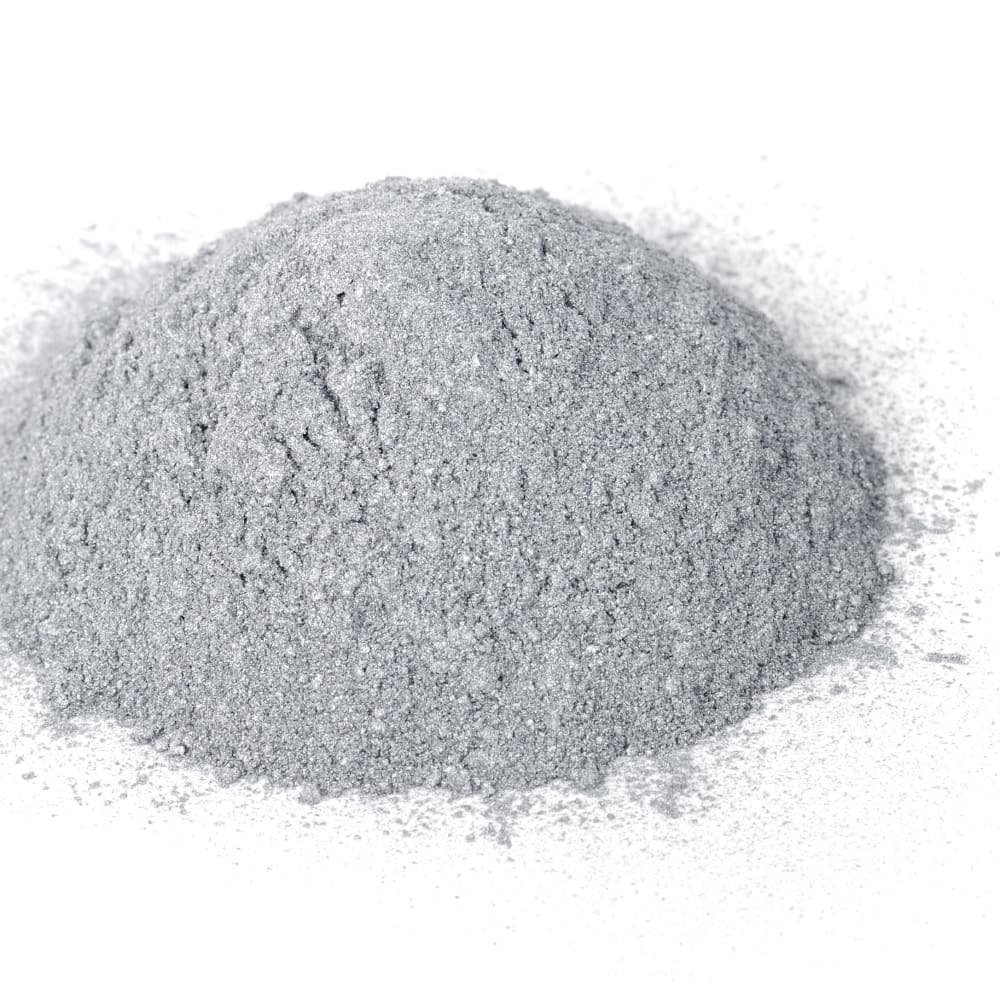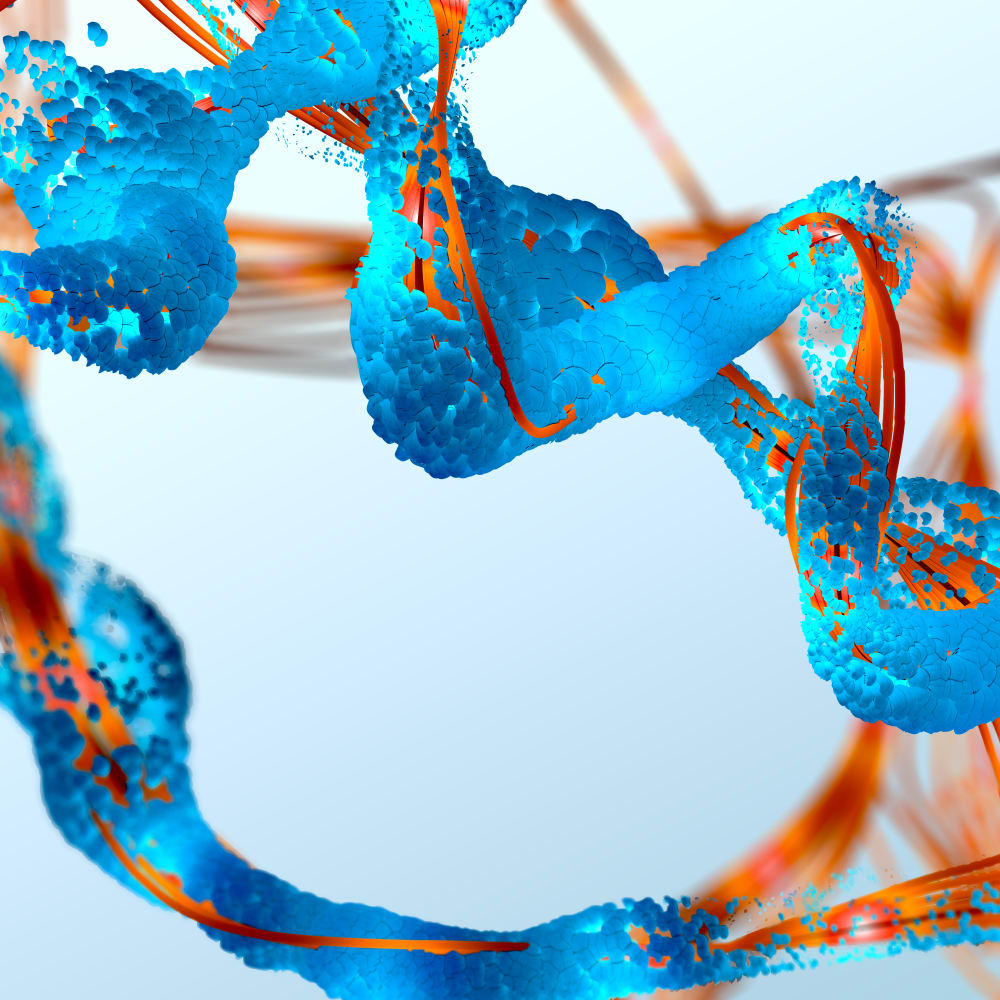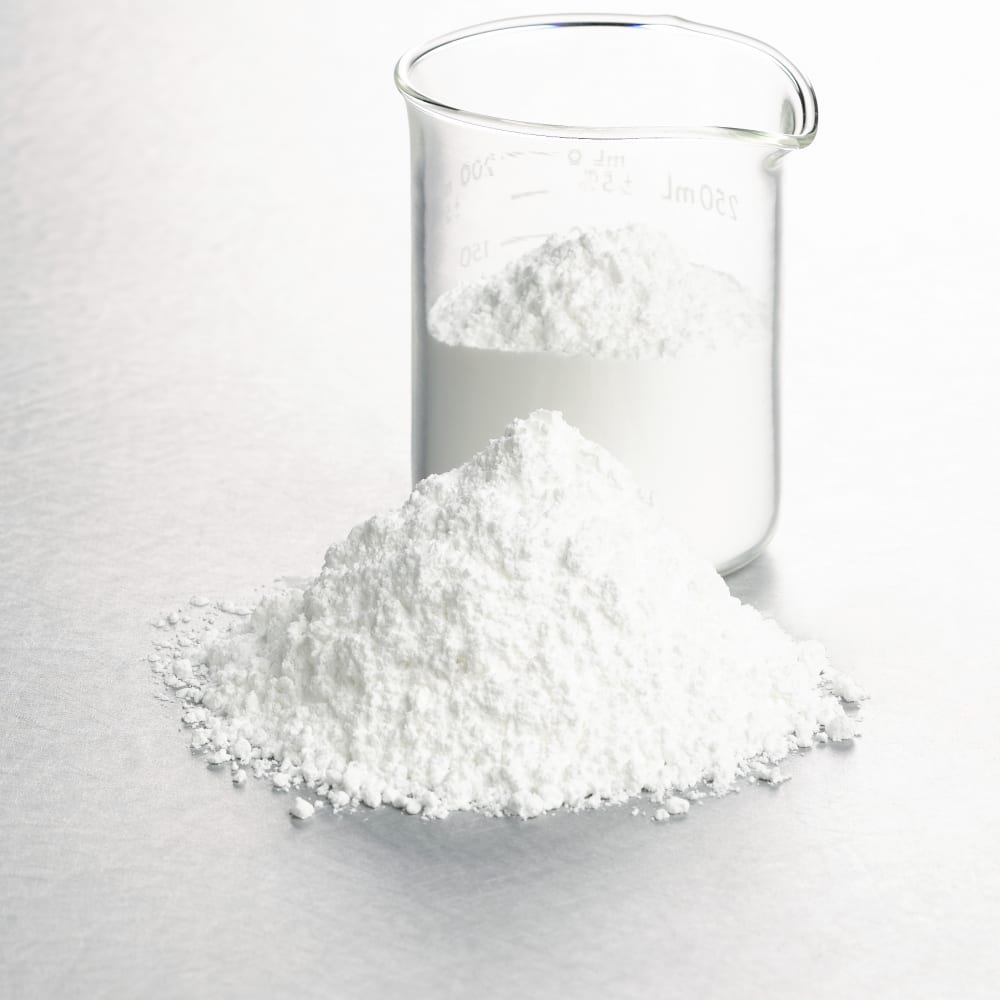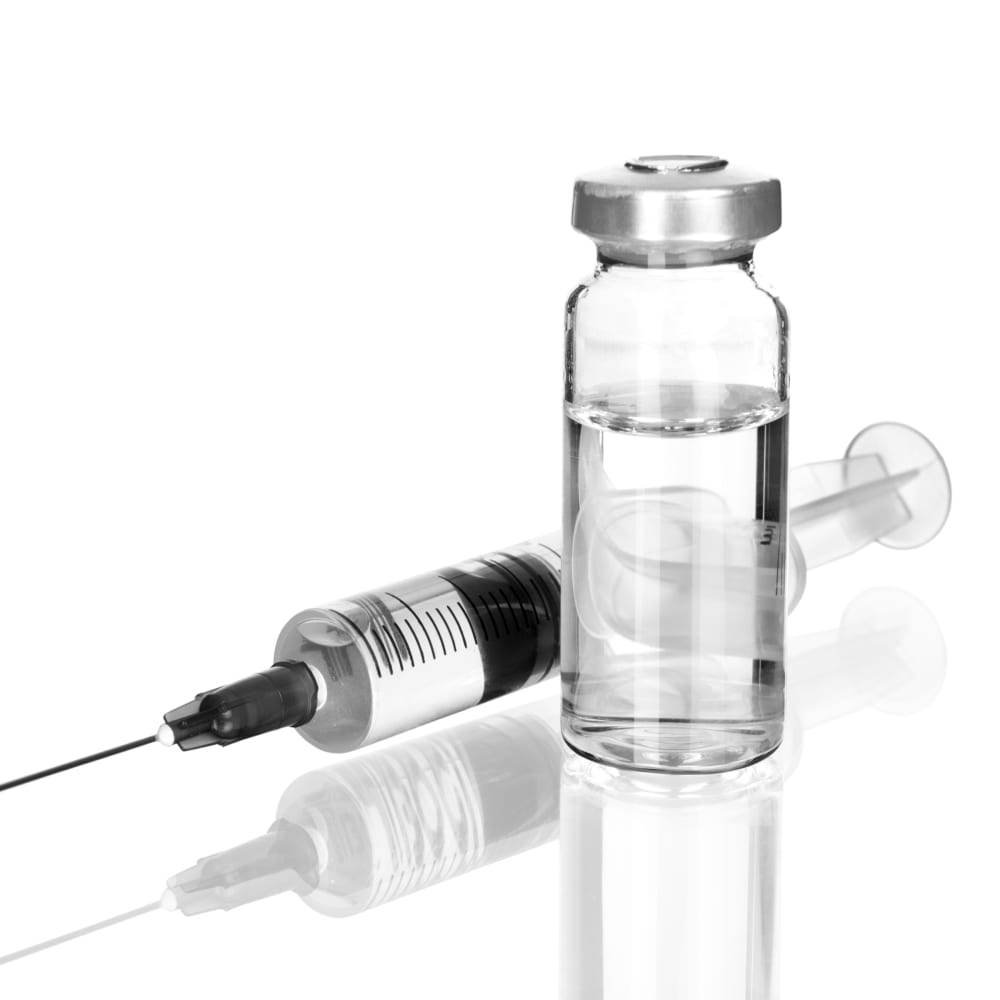Spray Drying of Poly-Caprolatone Nanospheres and Nanocapsules of Miglyol
Application Note Mini Spray Dryer B-290 Poly-Caprolatone Nanospheres and Nanocapsules of Miglyol
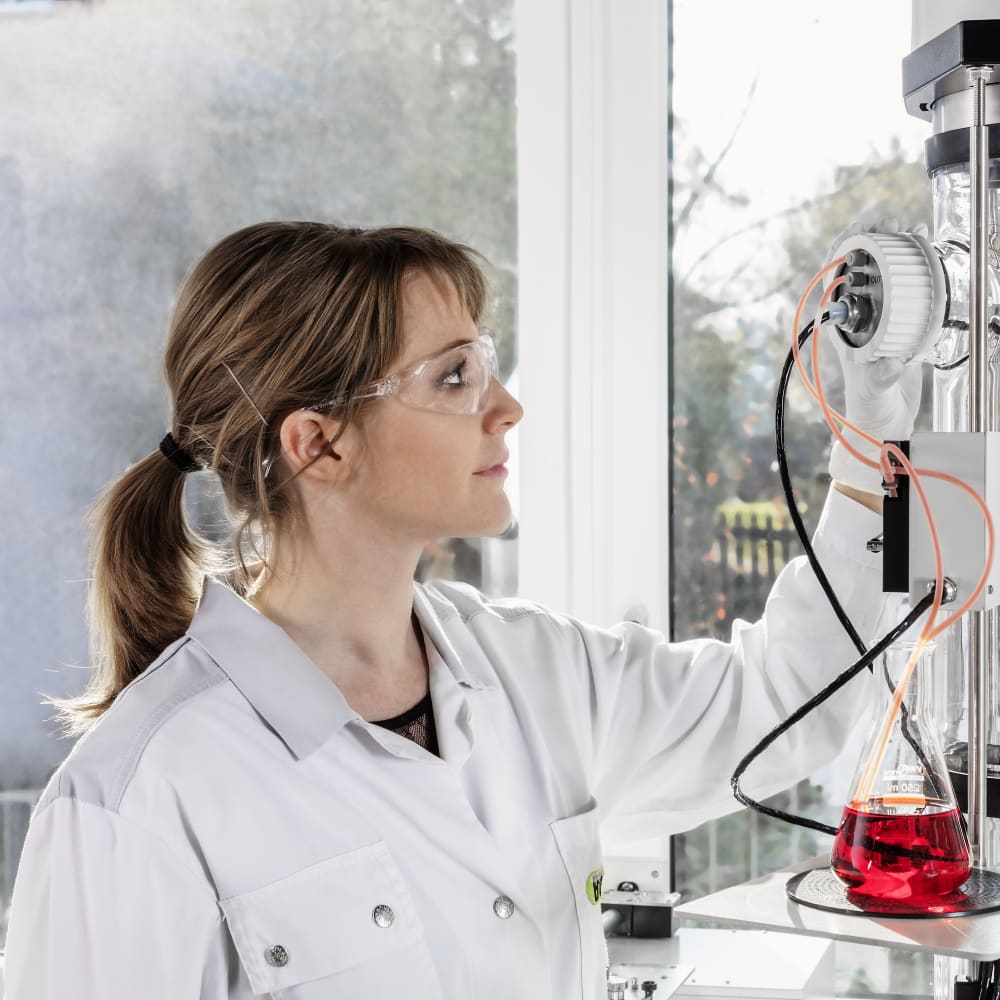
Poly-caprolactone (PCL) is a biodegradable polymer that has been widely used in drug delivery applications. Spray drying has been employed to produce PCL nanospheres and nanocapsules of Miglyol, which can be used to encapsulate drugs and improve their delivery and bioavailability.
The spray drying process involves atomizing a solution or suspension of PCL and Miglyol into a hot gas stream, which rapidly evaporates the solvent, leaving behind a dry powder containing the PCL nanospheres or nanocapsules.
Applications of spray-dried PCL nanospheres and nanocapsules of Miglyol include the development of drug delivery systems with improved release profiles, increased stability, and enhanced bioavailability. These systems can be used for a wide range of therapeutic applications, including cancer therapy, gene therapy, and vaccine delivery.
Overall, spray drying of PCL nanospheres and nanocapsules of Miglyol offers numerous benefits and has a wide range of potential applications in the field of drug delivery. Its versatility and adaptability make it a valuable tool for the development of new and innovative drug delivery systems with improved properties and performance.
Please see the application note No. 618 for starting parameters and some results.
